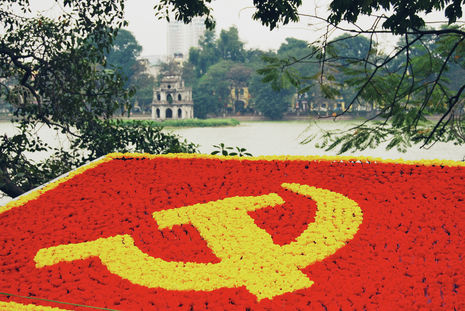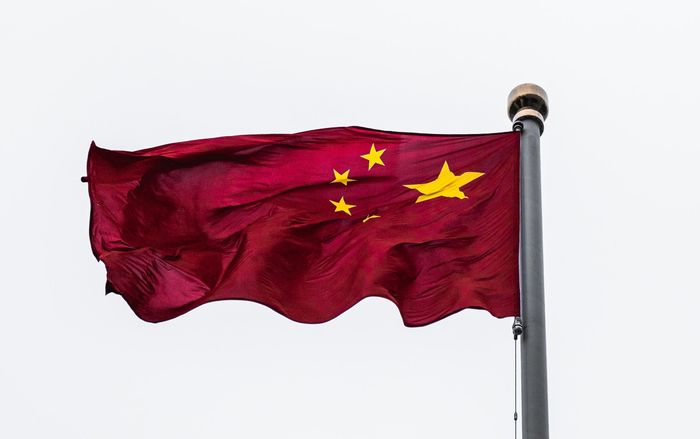The West cannot ignore human rights abuses in Vietnam
After the imprisonment of prominent activists earlier this month, an anonymous student argues that the West cannot turn a blind eye to human rights abuses in Vietnam

The latest round of crackdowns on dissent carried out by the Vietnamese Communist Party (VCP) has seen scores of independent journalists and activists imprisoned, including perhaps its most famous critic, Pham Doan Trang. Trang was sentenced to nine years in prison by the Hanoi’s People Court, one more than even prosecutors had recommended, under the infamous 88th Article of the 1999 Criminal Code, criminalising “carrying out activities aimed at overthrowing the people’s administration”. A prolific writer on issues of women empowerment and environmental justice, she also founded Luật Khoa, an online magazine providing legal advice to individuals detained arbitrarily by the Hanoian regime. Her trial demonstrates, again, the disregard for the rule of law by the Hanoian regime, yet her arrest in October last year also coincided with the day that Vietnamese and American officials met to discuss issues of democracy and human rights. The irony should not be lost. Despite the West’s ramped up rhetoric in defense of free speech, exemplified by American President Joe Biden’s pledges on World Press Freedom Day, I argue little is being done to support those whose voices are smothered by the Vietnamese government.
“The strategic importance of Vietnam to the West has allowed the VCP to get away with draconian approaches to stifling dissent”
The fifty years following the overthrow of the American backed Republic of Vietnam by the VCP under Ho Chi Minh’s leadership have been marked by dramatic lows and highs – from being one of the only countries in history to suffer an economic contraction in the years after a war, the country has blossomed into a regional economic powerhouse with growth rates rivalling China’s. While much has rightly been written about the human rights violations committed by its northern neighbour, Western attention, by contrast, has been sparsely focused on the situation in Vietnam. This trend has been caused by a number of factors.
First, the strategic importance of Vietnam to the West has allowed the VCP to get away with draconian approaches to stifling dissent. Looking to exploit tensions surrounding the disputes in the South China Sea between the Chinese and Vietnamese governments, the United States and Europe have moved to forge amicable relations with the latter. This has been shown recently by the invitation of Vietnam to the meetings of the Quadrilateral Security Dialogue (Quad), a US led strategic initiative that also includes India, Japan and Australia. Through increased military coordination, the Quad hopes to make the country part of its Indo-Pacific strategy.
Despite these important strategic concerns, the West’s neglect of their own commitment to certain liberal and democratic values could prove detrimental in the long run. The commitment to and reaffirmation of these values serves as a legitimising mechanism for international action; disregarding this in favour of purely strategic concerns could allow China to lay moral claim to a new international order.
Second, the VCP has already thawed, and there is a belief that with greater economic development this will continue. Indeed, attention has been drawn to how multilateral agreements such as the Trans-Pacific Partnership (TPP) have improved labour laws in the country by solidifying their alignment with international standards. The decision to hold the second Trump - Kim Summit in Hanoi could be construed as an attempt to demonstrate to the North Korean leader what his country could become: a socialist regime (at least in name) that is economically successful and politically integrated with the international community. Political commentators such as Bich T. Tran have argued that the Vietnamese and Chinese regimes are fundamentally different, and should be treated accordingly: while she characterises China as a “revisionist” state, whose goal is to upend the norms that preside over the current international political system, Vietnam is a “communist” state that is only interested in dictating its own internal affairs. Her prescription is therefore for the West to continue deepening trade ties with the country whilst persuading it to change.
“It is naive to believe that as Vietnam grows economically, it will not attempt to expand its influence”
I contend that the West’s current approach is severely misguided. Hanoi continues avoiding any over-reliance on superpowers, and it will likely maintain friendly political ties with China. Despite its deep-seated skepticism of Beijing, the VCP recognises the American threat to its leadership; any attempts to sway them to either side would likely prove futile. Furthermore, unlike the predictions of political pundits, Vietnam’s economic liberalisation has not led to parallel trends in its politics but rather the opposite. As Amnesty International observed, during 2020 “arbitrary arrests and prosecutions of human rights defenders significantly increased”. As of last year there were 173 prisoners, the highest number ever recorded by the organisation.
It is naive to believe that as Vietnam grows economically, it will not attempt to expand its influence and export its model overseas. One can already see shades of the country’s new foreign policy in Myanmar, where the Vietnamese military, aside from providing their Burmese counterpart with materiel support, owns a quarter of the largest telecommunications company, Mytel, known for its integral role in assisting the military junta’s network of repression.
A question remains: what should be done? The latest human rights issues in the country cannot go unnoticed; Western governments must draw attention to them with the same ferocity that they do towards China and its allies. This move would garner media attention and expose the government’s human rights abuses to both the world and to Vietnam itself. Compared to China, Vietnam’s internet is relatively unrestricted, and the dissemination of news among a public often kept uninformed of these occurrences could prove vital for instigating future change. There is great hope for the country’s young, with many abandoning the prejudices of older generations to become susceptible to new cultural and political ideas. Engagement with this group, particularly through social media, could be what the country needs in order to transcend the contradictions within its political system today.
 News / University Council rescinds University Centre membership20 February 2026
News / University Council rescinds University Centre membership20 February 2026 News / Hundreds of Cambridge academics demand vote on fate of vet course20 February 2026
News / Hundreds of Cambridge academics demand vote on fate of vet course20 February 2026 News / Judge Business School advisor resigns over Epstein and Andrew links18 February 2026
News / Judge Business School advisor resigns over Epstein and Andrew links18 February 2026 News / Caius students fail to pass Pride flag proposal20 February 2026
News / Caius students fail to pass Pride flag proposal20 February 2026 News / Union cancels event with Sri Lankan politician after Tamil societies express ‘profound outrage’20 February 2026
News / Union cancels event with Sri Lankan politician after Tamil societies express ‘profound outrage’20 February 2026










